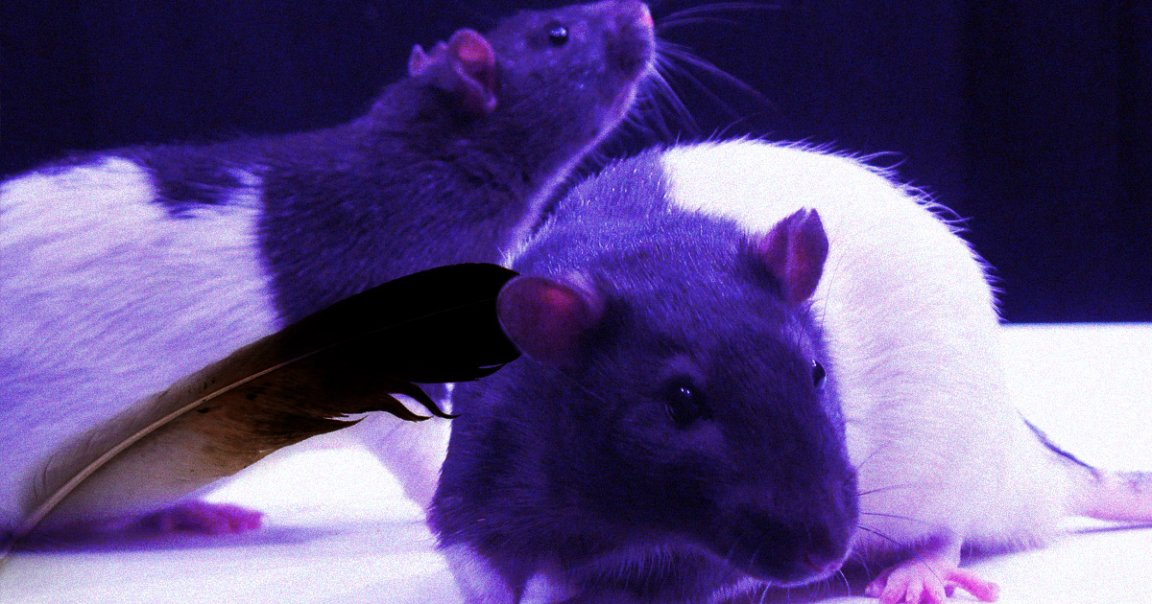
Nobel, Please!
A team of intrepid scientists has made a major leap forward in learning to communicate with animals.
By listening to the vocalizations of lab rats, they believe they were able to determine which rats did and didn’t enjoy being tickled, according to research published Monday in the journal Current Biology. It may sound a bit frivolous, but the discovery lends new insight into rats’ emotional wellbeing, which is a crucial part of conducting scientific research on the little critters.
Tickle Fight
Scientists have long assumed that the high-pitch noises rats make when being tickled or played with were similar to human laughter, but had no way to know for sure. Now, the new study directly correlates the number of vocalizations to an individual rat’s emotional response.
“Being able to measure a positive emotional response in animals is an important way to improve their welfare,” lead author and University of Bristol psychopharmacology professor Emma Robinson said in a press release. “What we have shown in this study is that the vocalizations made by rats in response to tickling are an accurate reflection of their emotional experience and something which is easy to measure.”
Best Medicine
Robinson and her team want to determine whether the rat squeaks indicate emotional wellbeing in situations other than tickling.
“Should this be the case for other situations,” Robinson added, “measuring vocalizations could provide the simple, graded measure of emotional experience needed to better understand and improve the welfare of rats in a laboratory.”
READ MORE: Do rats like to be tickled? [University of Bristol]
More on animal research: Scientists: Lab Mice Deserve Happier Lives